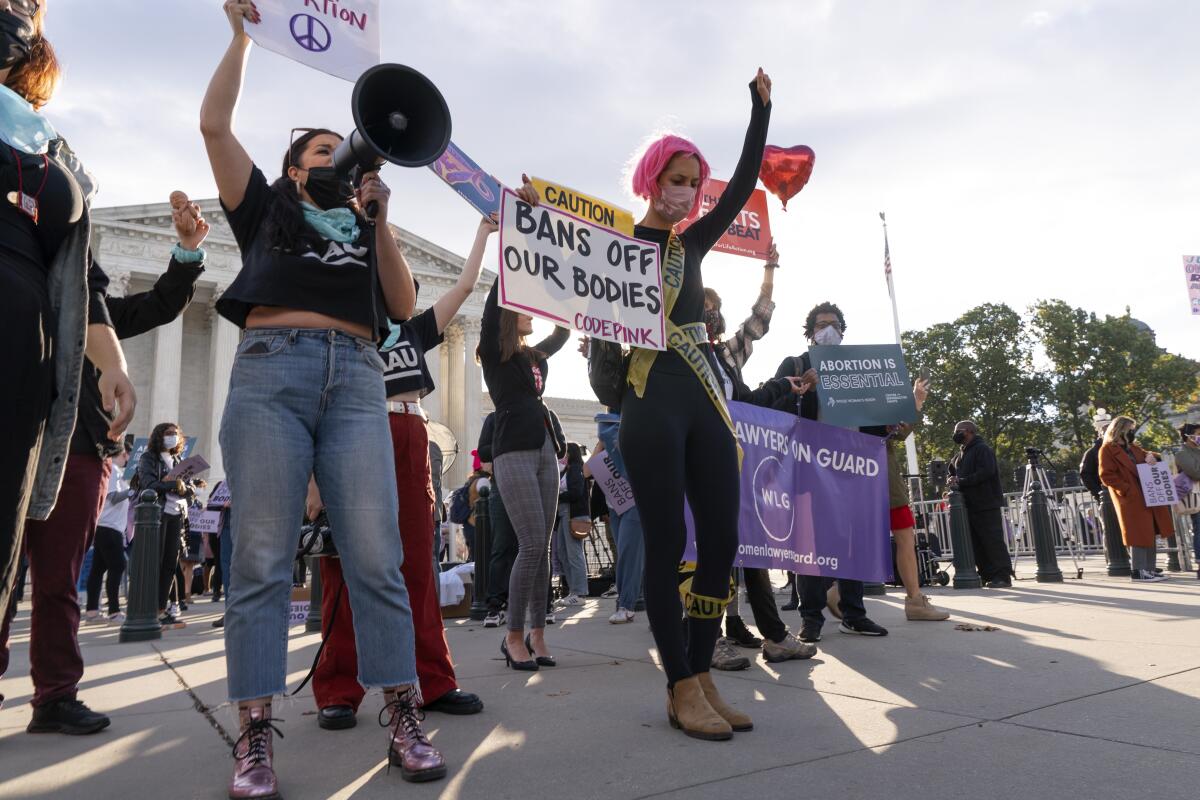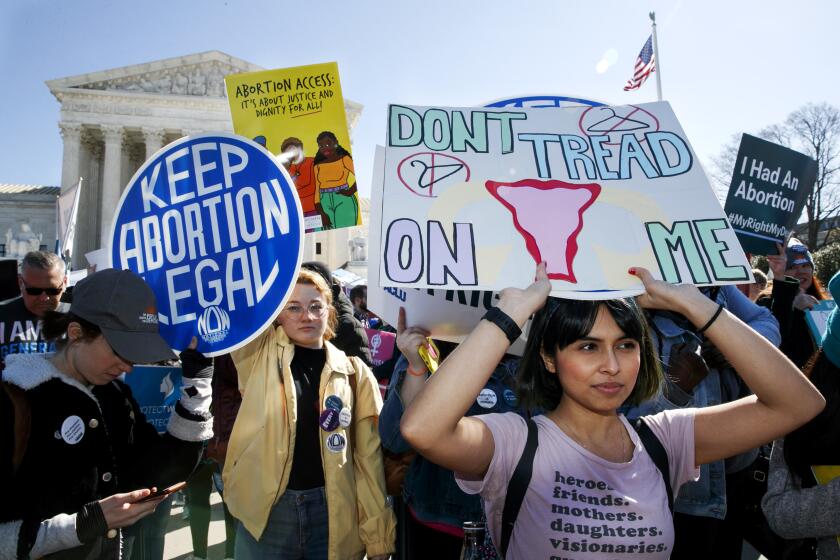Editorial: The Supreme Court’s ruling won’t restore access to abortion in Texas anytime soon

The Supreme Court ruling on the diabolical Texas abortion law Friday was not particularly good news for abortion providers — or the millions of women of child-bearing age — in the Lone Star State. The court refused to block the law that allows vigilante lawsuits against abortion providers or anyone else who helps a woman get an abortion after six weeks of gestation, or allow abortion providers to sue Texas state court clerks and judges.
The only upside is that the court will allow providers and advocates to sue the state licensing officials in Texas who have disciplinary authority over doctors, nurses and pharmacists, though that alone is not going to stop enforcement of the law.
The Supreme Court is hearing a case asking it to overturn Roe vs. Wade, but it should reject it and continue to protect access to abortion.
That is just a sliver of a win for the advocates who wanted a way to legally challenge the constitutionality of the law, which has virtually stopped abortions in Texas. The six-week limit defies the standard set in Roe vs. Wade and reaffirmed in Planned Parenthood vs. Casey that abortion is legal up to the point of viability of the fetus outside the womb (which is about 24 weeks of gestation).
Meanwhile, the decision Friday may not bode well for the outcome of Mississippi’s challenge to the bedrock abortion ruling in Roe vs. Wade. Mississippi state officials have asked the Supreme Court to either overturn Roe or let stand the state’s ban on abortion at 15 weeks of gestation. During oral arguments on Dec. 1, the conservative justices’ questions seemed to signal that they were considering a way to overturn Roe or let the 15-week ban stand — which, effectively, guts Roe and leaves states everywhere to set the limit on abortion at ridiculously early stages of pregnancy. But asking questions is different from making a decision. Remember, the questions at oral arguments in the Texas case suggested the majority of justices weren’t buying the Texas law.
Justice Neil M. Gorsuch, writing for the 5-4 majority, said that “one thing this Court may never do is disregard the traditional limits on the jurisdiction of federal courts just to see a favored result win the day.” And he also noted that if people wanted more ways to restrain state governments, they were free to go to Congress for that, mentioning that the House of Representatives had just passed the bill known as the Women’s Health Protection Act — which would protect the right to abortion and restrain states from passing their own ridiculous, overly restrictive laws.
In fact, that bill should become law, though it faces a potential battle in the Senate.
But it’s shameful that five justices of the court can’t see this law for what it is — or, worse, that they do but don’t care — an end-run around the (at least for now) constitutionally derived right to abortion.
Chief Justice John G. Roberts Jr., who would have allowed state clerks to be sued, is sure worried about what this ruling means for the role of the Supreme Court, writing in a dissent: “Texas has employed an array of stratagems designed to shield its unconstitutional law from judicial review.”
And Justice Sonia Sotomayor wrote that the court in effect invites other states to copy Texas’ model for nullifying federal rights. That, she said, is a betrayal of “not only the citizens of Texas, but also our constitutional system of government.”
There have been numerous references in court arguments, filings and rulings about the chilling effects of this law on providers of legal abortion. But what the Supreme Court has done in its laissez-faire decision on this toxic law ultimately is the most chilling of all — it has shown that it is willing to turn its back on protecting constitutionally guaranteed rights.
More to Read
A cure for the common opinion
Get thought-provoking perspectives with our weekly newsletter.
You may occasionally receive promotional content from the Los Angeles Times.







